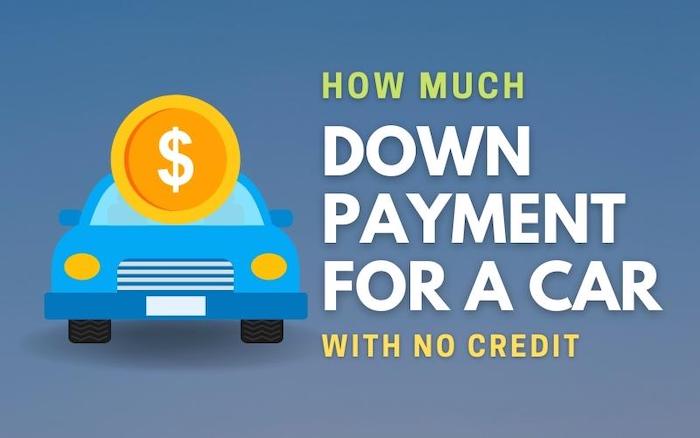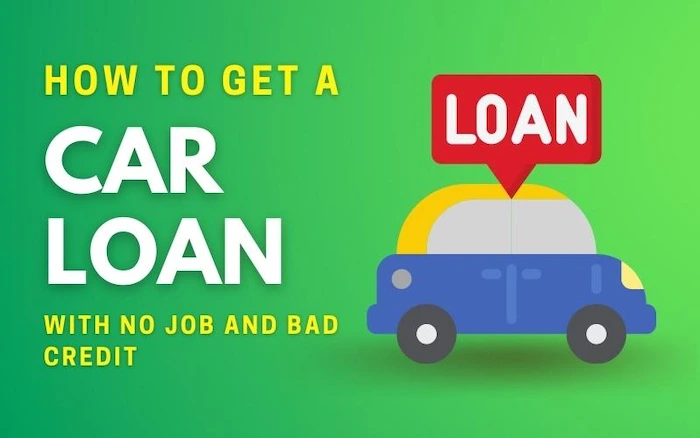Average Car Loan Interest Rate By Credit Score
Buying a new car is a fulfilling experience, especially if it is your dream vehicle that you have been planning to purchase for months. That said, it takes a lot of time, research and planning to lay the groundwork necessary to make your dream come true, particularly if you want the best deal. As you think about your vehicle purchase, you need to go further to ensure a balanced personal budget as you finance your new vehicle.
Keep in mind you will also pay for rent or mortgage, school fees, food and utilities, and other bills as you pay your auto loan. Therefore, you must ensure you have the best deal before signing the contract. Many factors determine the cost of your loan, including auto loan interest rate, duration and credit score. People with the highest credit score usually get the lowest auto loan rates. This article looks at the average car loan interest rate by credit score and other elements that affect your auto loan cost.
Car Loans And How They Work
Unless you have won a jackpot or have a big budget, you are likely to need an auto loan to buy a new car. It is difficult for most people to save enough cash to enable them to purchase a vehicle without seeking financial assistance. On the other hand, it is easier for potential car buyers to get auto loans, as you can find institutions willing to lend to individuals with bad credit at a premium.
With only a few clicks on the internet, you can find many lenders ranging from banks to third-party institutions offering auto loans to interested individuals. The main difference between banks and other lenders is the loan interest rate. The interest rate varies from one lender to another depending on the financial institution’s terms, but the credit score is the biggest determinant of your auto loan cost.
People with poor credit history have a higher risk of default, which translates to higher average auto loan rates. Other things like the Federal Reserve guidelines, loan duration, and downpayment may contribute to your loan interest costs. We suggest you do due diligence before buying a car to ensure that the lender does not offer a higher interest rate than the average auto loan rate by credit score. Contact several lenders, including credit unions and compare their quotations to find the most affordable auto financing.
What Factors Affect Auto Loan Interest Rates
If you and your friend contact the same lender and request the same loan amount for the same period to finance the same car, there is a possibility you will get varying interest rates. Financial lenders calculate interest rates to include their profit and your risk element. If your friend has a higher credit score, you will likely get a higher APR rate than your friend. Nonetheless, your credit score is not the sole determining factor for your APR rate. Some of the factors that affect car loan interest rates include:
1. Credit score
Although some online lenders do not rely on your credit score to make a financial decision, the major auto lenders look at your credit history before giving or denying you a loan. Individuals with a good credit score of about 700 or more get favorable loan terms, while those with poor scores do not qualify or get an auto loan at a higher interest rate. The auto loan rates for different credit scores range from zero to 19 percent, but the rates for credit card companies may go higher.
You may need to request a quotation from different lenders to get a reasonable rate. Nevertheless, you can use the average car loan interest rates by credit score to find an estimate of the rate you should expect for your credit score category. It is worth noting that individual lenders look at other factors like your income to calculate your interest rate, which explains why different auto lenders will give different rates despite relying on the same personal details. Nonetheless, the average auto loan interest rates for guideline purposes include:
- Excellent credit (750+): People with a credit score of or above 750 usually get the best auto loan rates, with some manufacturers offering special rates of zero percent APR. Individuals in this rating group have endless possibilities for auto financing. The average auto loan rate is about 2.4 percent for new cars and 3.61 percent for used cars.
- Prime credit: Car buyers with a credit score of between 700 and 749 also get competitive rates from multiple lenders. The average auto loan interest for a new car is 4.5 percent, and the used car loan APR for individuals in this score category is 6 percent.
- Fair credit: Individuals with a credit rating of between 600 and 699 get average interest rates of 6 percent for new cars and 8 percent for used vehicles.
- Bad credit: You have bad credit if you have a rating of between 500 and 599. Most major financial institutions such as banks may fail to give loans to individuals in this rating group. You will likely get a better deal from a credit union if you are in this category. The average auto loan rate for people with bad credit is 11 percent for a new car and 14 percent for a used vehicle.
- Very bad credit: Individuals with a credit score of less than 499 may struggle to get car financing from banks and other major lenders due to their high risk of default. Nonetheless, individuals with very bad credit may seek auto financing from other lenders who avail loans to people with poor or no credit history. People in this deep subprime category get higher interest rates due to their greater risk with the average interest rates for purchasing a new car being 15 percent whiles the rates for a used car being 18 percent.
2. New or used car
Auto lenders do not treat used and new cars equally when processing loans. New cars have a lower interest rate than used cars, which lenders claim carries a greater risk due to their used nature. Moreover, new vehicles have a greater resale value and provide better collateral for the loan.
3. Loan duration
The duration of your loan will directly impact your auto loan APR. The shorter loans tend to have a lower annual percentage rate, with most lenders preferring 36 months or 48 months loan duration. Longer vehicle loans come with a greater risk of car breakdown and future uncertainties, which results in higher APR rates. The best loan duration should match the car warranty duration. If the manufacturer warranty covers the vehicle for four years, ensure the monthly loan payments do not exceed 48 months to help you save money.
4. Car make or model
The choice of your car model or make can make you get a higher or lower loan interest rate. Although financial institutions carry due diligence to ensure you can repay the loan in full, they are wary of what would happen if you can no longer make monthly payment for your auto loan. Vehicles with better resale values get lower interest rates.
5. Down payment
While it is possible to get a loan without putting a down payment, you may end up paying more interest costs on your loan. Putting a down payment improves your loan-to-value ratio, which means you are not likely to go under on your loan. A larger down payment ensures your car’s value is higher than depreciation throughout the loan period, which results in a lower risk.
How Does Lower Auto Loan Interest Save Money
A five percent APR rate difference may not look like a deal breaker on your contract agreement forms, but it can help you save money at the end of your loan. To help you understand how a lower car APR rate can save you money, we look at how much people in different credit score categories would pay for the same car. We assume the car buyer will request a loan of $20,000 without a down payment or a trade-in value for 48 months. You can use an online car loan calculator to estimate the savings you will make with a lower interest rate.
From the average car loan interest rates by credit score, car buyers in the subprime category get auto loans at a 2.4 percent APR rate. A car buyer in this group will make a $437 monthly payment. The total interest payments will amount to $995 over the life of the loan.
In the prime category, clients get average APR rates of 4.5 for a new car. In our example, a customer will pay total interest of $1,891 while making $456 monthly payments. In the nonprime and subprime categories, a car buyer will pay total interests of $2546 with $470 monthly payments and $4,812 with $517 monthly payments.
People in the deep subprime pay the highest interest costs on their auto loans. At average APR rates of 15 percent, loan applicants in this category pay a total interest cost of $6,718 with monthly payments of $557. The difference between very bad credit score and excellent score ratings is $5723.
How Can You Lower Auto Loan Interest Rates
Lowering your new car loan rate is an effective way to save money. Although there are several ways you can get a lower auto loan rate, including putting a down payment, improving your credit score is the most effective way to lower your APR rate. However, it takes time and financial discipline before you can notice significant changes in your score. Some of the steps you can take to lower your vehicle auto loan include:
Pay bills on time
The major cause of poor credit score is the inability to pay credit cards and bills on time. Keep track of all your bills and make payments at least a few days before the due date. We recommend you adopt automatic payments for regular bills to avoid missing a payment. You can use mobile wallets to help you track your expenses and make automatic payments or set reminders of bill’s due date.
Ensure low credit card utilization
A credit card can help you improve your credit scores, as credit card companies regularly report to the credit bureau, which means constant history updates. Nonetheless, you should avoid fully utilizing your credit limit, as it shows financial constrain. Keeping your credit card utilization as low as possible can help you get lower auto APR rates. Alternatively, you can increase your credit limit for the same benefit.
Avoid loan applications
Whenever you apply for a loan, the lender carries out a hard query on your credit report, which negatively affects your score rating. You need to keep your applications low to avoid harming your credit scores. On the other hand, you can take advantage of a 14 days window to make all necessary applications. Credit bureaus treat applications within a short period as one enquiry, minimizing the effect on your score.
Give a large down payment
A down payment reduces your auto loan, which makes your application attractive to the lender. Putting a large down payment ensures that the value of your car will be bigger than depreciation. It puts you on positive equity, which means the lender can sell the car and recover the loan balance if you default. The minimal risk allows the financial institution to give you a lower auto loan interest rate.
Prove your financial stability
Despite your good efforts to maintain good credit history, some things beyond your control, like salary delay or history errors, can negatively affect your credit scores. You may also have been in a situation like health issues that affected your ability to pay bills in time. If you are in such a situation, you can include your financial documents with the lender as proof of your financial stability. Additional financial documents like tax returns and pay stubs can help you bargain a better interest rate if you feel your credit history does not showcase your current status.
Seek the assistance of a co-signer
If you do not have a credit report or you are rebuilding your bad credit, you can seek the assistance of a co-signer to help you get better rates. A co-signer must meet the lenders requirements, including income and credit rating. The work of the co-signer is to reduce your risk level by providing the lender with the assurance that you will pay the loan as agreed. In case of a default, the co-signer becomes responsible. You will get better rates for your auto loan as the financial institution will use the co-signer’s good score to process your loan application.
Can You Lower The Interest Rate of an Existing Car Loan
Yes. If you feel your current auto loan has a higher interest rate, you can lower the APR rates by refinancing. Things like changes in Federal Reserve rates make car loan costs fluctuate, necessitating the need to refinance for better terms. You may also want to refinance your vehicle loan if you have improved your credit score significantly to qualify for a lower APR rate. You may also seek refinancing if you notice your current APR rate is higher than the average car loan interest rate by credit score.
Nevertheless, you should only refinance if it makes financial sense. The major challenge with refinancing is timing. Refinancing may not be a good option if you are almost at the end of your loan repayment. While you may reduce the interest cost by refinancing your vehicle loan, the overall cost of the new loan may surpass the reduced APR rate gain. Refinancing is beneficial if you are in your earlier stages of loan repayments, as the gains will be higher than the processing costs.
You may further avoid refinancing if your car is running out of warranty or has high mileage. Most lenders will not offer the average auto loan rates for cars with high mileage. It is also not a good idea to refinance if you are upside-down on your initial auto loan as you owe more money than your car’s value. Refinancing may also not make sense if your initial loan has a prepayment penalty. Review the terms of your current auto loan to find existing penalties. You also must calculate the penalty and compare it with savings to decide if refinancing makes sense.
Tips For a Better Auto Loan Deal With Bad Credit
People with bad credit report rarely get better deals when applying for auto loans. That said, there are some steps you can take to save money when buying a used or a new car. We advise that you review your credit score beforehand to find errors that may affect your rating. You will also have an idea of what is a good deal based on the average auto loan rates by credit score. If your history rating is subprime or deep subprime, you may choose to avoid applying for the loan until you improve your credit score, or get financing from credit unions.
You may also avoid bigger loans and instead choose an affordable vehicle. You should not go for luxury and high-end cars as you may end up paying thousands of dollars as interest costs. Instead, look for functionality and reliability as you look for a vehicle. Furthermore, avoid long-term loans and go for the shortest loan period you can afford.
Conclusion
Interest rate is the most important component when applying for an auto loan. A lower interest rate can help you save money, and hence, it is always essential you compare your quotation with the average auto loan rates by credit score. Make sure the ideal APR rate is lower than the average rate.




